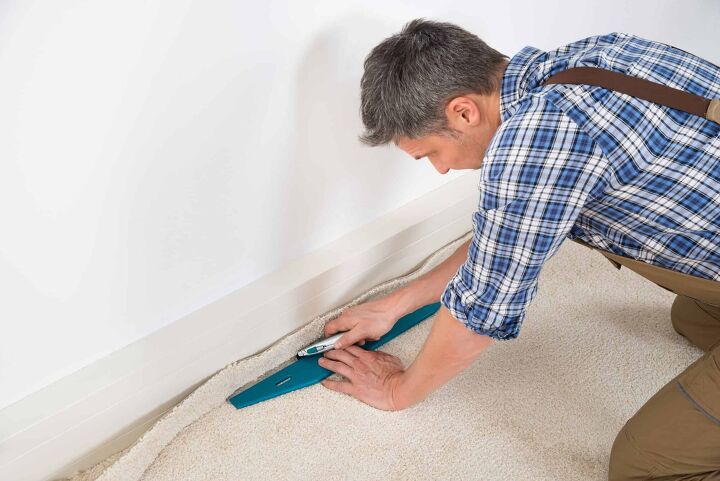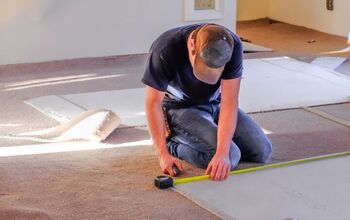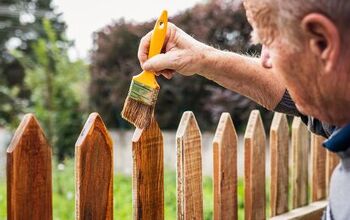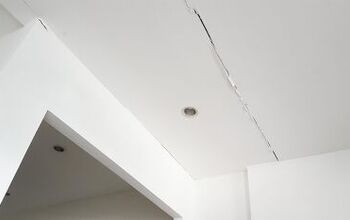Do I Need To Tip Carpet Installers? (Find Out Now!)

Pets, children, everyday wear and tear: these are all reasons that you need new carpet. Once you’ve picked out the perfect style, texture, and color, it’s time to hire someone to install your carpet. But, this can make you wonder, “Should I tip my carpet installer?”
While it is not customary to tip flooring installers, most people will agree that high-quality service deserves a tip. According to Give How Much, a website devoted to tipping, 50 percent of people tip $10 – $40 per installer. However, $20 per day, per installer, is the norm.
Tipping Carpet Installers
The most challenging part of getting new carpet is choosing the carpet that is best for you and your home. Once you’ve picked a carpet type and color, it’s smooth sailing. Your flooring installer will arrive at the agreed-upon time with the carpet, necessary supplies, and tools, and get started.
Whether or not to tip carpet installers is a 50-50 split amongst people. Some say that appreciation in the form of water, snacks, or some similar expression of gratitude is enough.
Others say that you should always monetarily tip if the professional delivers quality service. This is especially true if you are asking the installers to move furniture around. Most of the time furniture moving is not part of the contract. This is an extra task for the installer, and he or she should be compensated appropriately for the favor.
When to Tip Carpet Installers
Before you hire a professional, like a carpet installer, it’s common to get a cost estimate (or several) for the work. If you feel that their rate is fair and the work that they do is great, it’s not uncommon to give the installers some extra money to show your appreciation. In industries like this, tipping is more seen as a valued bonus.
Whereas, in a business relationship, such as with a dentist or doctor, you would not tip. After all, it is their job to examine your teeth or give you a checkup. On the contrary, it is typically considered rude not to tip your waiter or waitress at a restaurant. In the food and service industry, tipping actually makes up the majority of employees’ incomes.
Ultimately, it is up to you to decide whether you think carpet installation is a business relationship or a personal service. However, if you are happy with their work, why not show your gratitude with a tip?
When Not to Tip Carpet Installers
There are some major corporations that have strict regulations against employees getting extra compensation from customers. In other words, if you’ve hired an installer from a franchise or a big company, tipping may not be allowed.
If you’re not sure about their specific policies, you can check the company’s website and see if they have anything posted. Or, simply speak with the supervisor on the job to avoid any awkward encounters later on.
How to Tip Carpet Installers
As with most services, you’ll tip at the end once the carpet is installed correctly. There are a few options when it comes to how you can tip, such as cash, check, or credit card. The customary way to tip carpet installers or any service person is in cash. Cash is the traditional way to tip for a couple of reasons.
One reason is so that you know the money is going to them. You want the tip to go directly to the person that completed the service as your token of appreciation. Another reason is so the crew does not have to split the tip amongst themselves.
Note: Be prepared with small bills, preferably ones and fives. This will allow you to distribute the tip to each installer evenly.
It is best not to write a check. If you were to write a check for the total tip, it might not get to each person. Ideally, the installer should get tipped on the install day, instead of waiting until the check is cashed and distributed.
How Much Should You Tip Carpet Installers?
Unlike when you eat out at a restaurant and 15 to 20% is the standard, there is no standard for tipping carpet installers. Since these installers are not making a living off of their tips, you don’t have to worry as much about your tip supplementing their hourly pay.
If you’re not sure how much to tip, $10 per installer is a good base, but this can increase based on how happy you are with their work, the cost of living in your area, and other factors.
On average, people that tip flooring installers tip $20 per day per person. If you have a larger crew installing carpet in your house, this will drop to $10 per person, per day. A large crew would be a group of 4 or more.
If you have a more massive job that requires heavy lifting, some people will tip the crew between $100 – $200.
If deciding to tip using things like snacks and drinks, the items should be equal to the average monetary amount. As a courtesy, you should always offer anyone doing a service a glass of water or sports drink.
Carpet Installation Pricing & Service Fees
The average cost to install carpet is between $2 and $4 per square foot. However, carpet installation prices can vary greatly, depending on several factors like the type of carpet and method of installation.
The carpet installation company will keep all of these different factors in mind when deciding on your project quote. You can expect the installation company to give you a price per square foot or square yard. They sometimes will include a service fee.
A service fee should not affect whether or not you tip the installer. Service fees are different from tips and are for the contractor or company. This fee pays for the installers’ transportation throughout the day, maintenance of their tools, etc.
Should I Save Money and Install the Carpet Myself?
While tipping can be overwhelming and a little costly, that’s not a reason to install your new carpet yourself.
Here are five reasons why you should hire someone to install your new carpet:
1. Installation Time
You’ve probably got many jobs running a household, but flooring installation doesn’t need to be one of them. When you hire a professional carpet installer, they will be in and out of your home within hours.
If you choose to install the carpet yourself, you could struggle if you don’t know exactly what you are doing. Plus, you can have misplaced furniture strewn throughout your house for days, if not weeks! After all, you have a lot of other things to tend to in your home and your life.
It’s easy to let other tasks take precedent over installing your new carpet. Don’t let this happen – hire a professional to take the stress off of you.
2. Tools & Supplies
Saving money by not hiring a carpet installer may seem like the way to go. However, if you don’t have the proper equipment to do so, this could lead to spending more money than anticipated.
Buying and even renting power tools can be costly. Professional carpet installers will always come with the necessary tools to install your flooring properly.
3. Unexpected Issues
Let’s talk about the unexpected; you can always expect the unexpected to happen. Issues and complications during any installation process are inevitable.
Another thing to keep in mind: carpet installation can be difficult. You don’t want to get stuck midway through your carpet installation project. Don’t put any more unnecessary stress on yourself, and let the professionals handle it. They are trained for any issues that may arise and can resolve problems quickly.
4. Warranty
Most flooring installation companies have an installation warranty included in the cost of the installation. However, if you went the DIY direction, you could run into a problem that could cost you extra money.
If the task becomes more than you can handle, you’ll likely end up with mistakes. But if you install the carpet yourself, there’s no warranty to cover your labor. Plus, when it comes to installation issues, any warranty on the actual carpet will most likely be null and void.
5. Clean Up
Excess carpet from your new installation is not the only clean up you’ll have to worry about. There’s the old flooring, too!
Many garbage companies will not accept certain waste. In this case, you may have to take a trip to your local trash drop off site or have a dump truck service come to your home. And you guessed it; this service is not free. If you decide to rent the carpet installation tools, you’ll have to make a trip to return them as well. When you pay for professional installation, the clean-up is taken care of for you.
If you decide to install your new carpet yourself, keep in mind that it will take time. Installing your carpet will take precise measurements, careful planning, and some muscle. It’s essential to accurately calculate how much carpet you will need based on your room’s size.
Considering the extra costs and time associated with installing your carpet yourself, tipping your installers becomes much more worth it!
Related Questions
Should I tip for other home services?
Tipping on other home services can vary. Money.com says to tip your regularly scheduled home maintenance crew. For example, your lawn care service, but only if you see the same person or the same people every time. You should tip these professionals once a year around the holidays. However, if you are moving, you may see these movers only once, but they should also receive a tip. Especially when the items they are moving are heavy!
When should I replace my carpet?
Proper maintenance will extend the life of your carpet significantly. However, there will come a time when you need to replace the carpet, usually between five and 10 years. Everyday wear and tear, stains, and unpleasant smells, even after cleaning, could be signs to replace your carpet. Replacing worn-out carpet is vital since old carpet can lead to health concerns such as allergies or respiratory issues. Keep this in mind to alleviate any carpet replacement concerns. Once your carpet is installed, and the tip is paid, it’s time to enjoy your new and improved room!

Stacy Randall is a wife, mother, and freelance writer from NOLA that has always had a love for DIY projects, home organization, and making spaces beautiful. Together with her husband, she has been spending the last several years lovingly renovating her grandparent's former home, making it their own and learning a lot about life along the way.
More by Stacy Randall



























